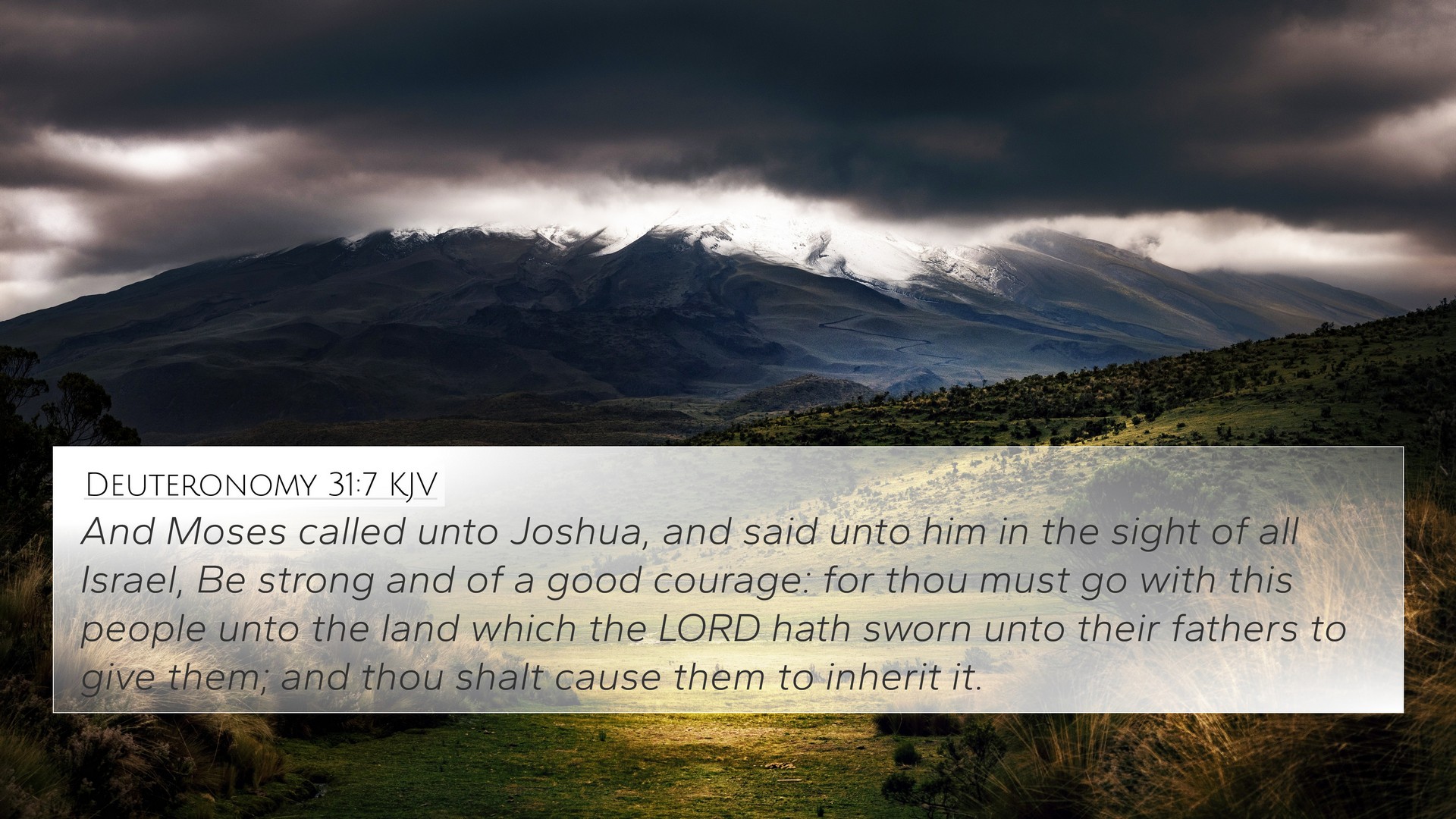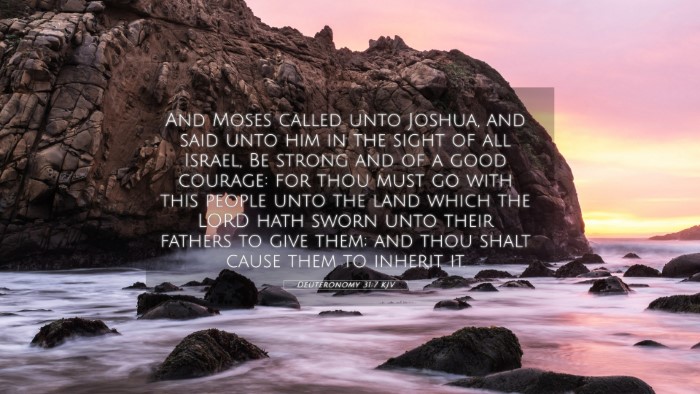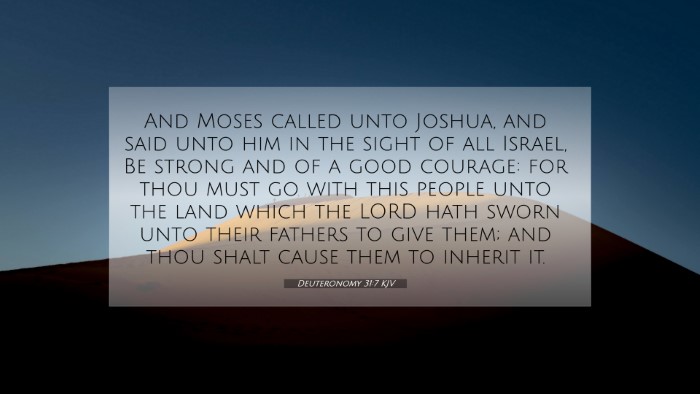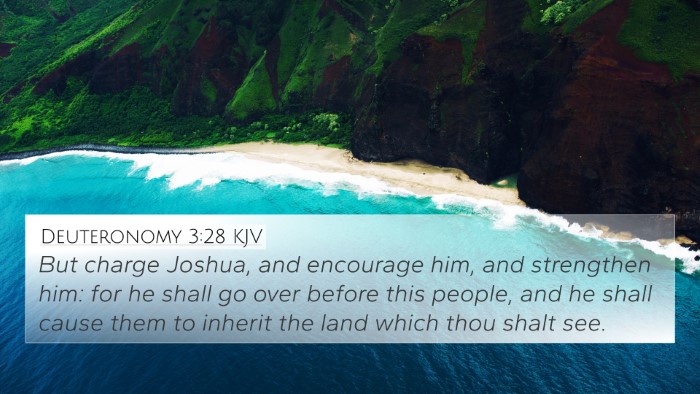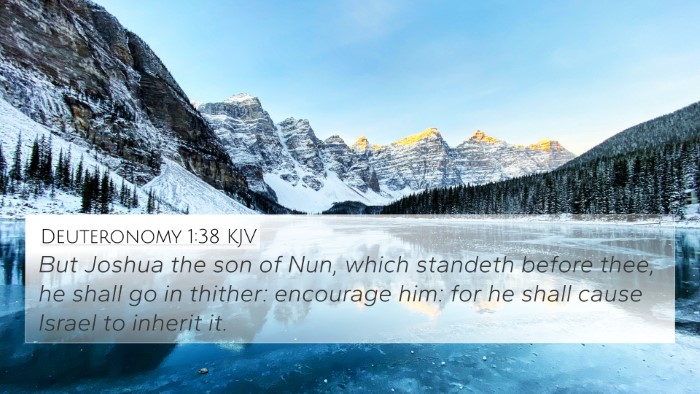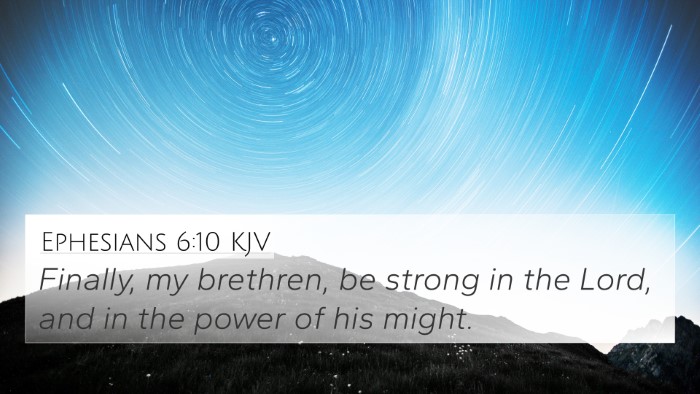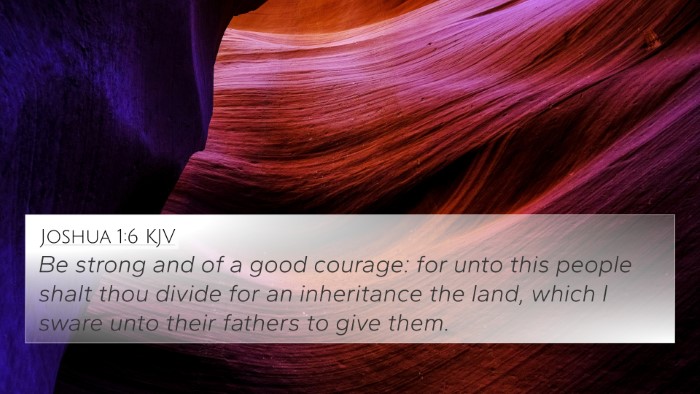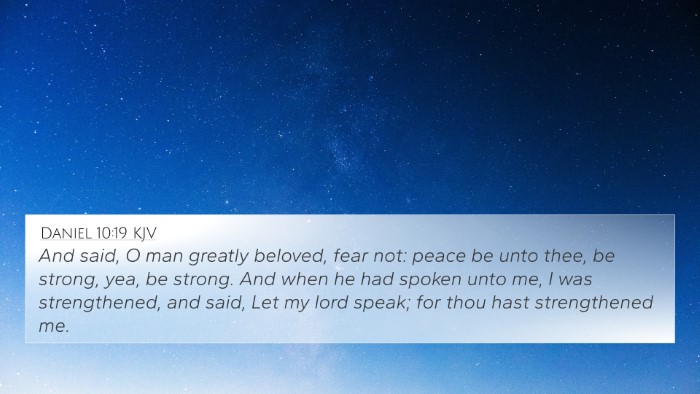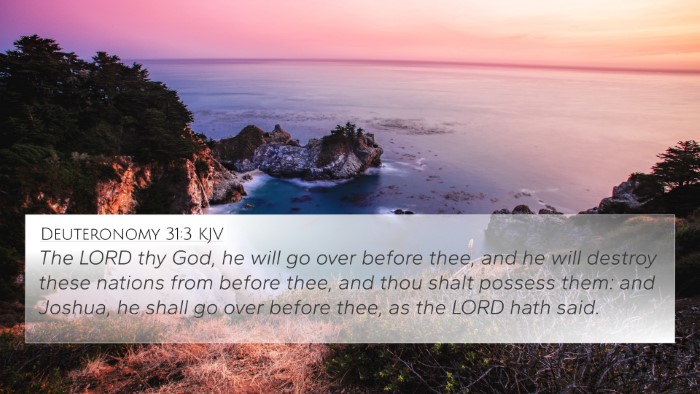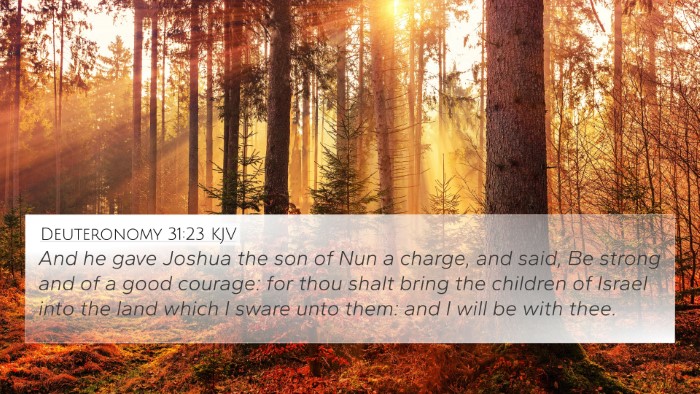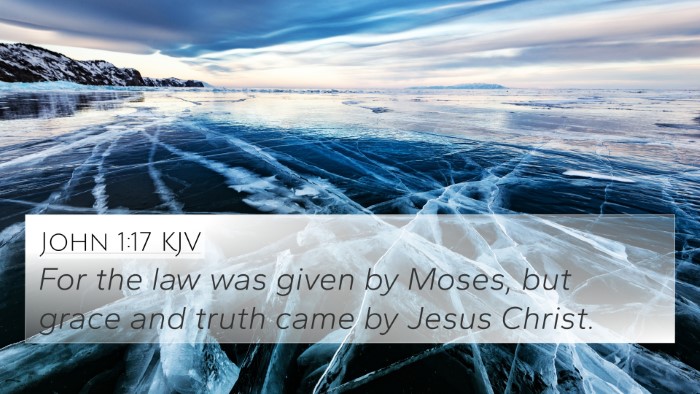Deuteronomy 31:7 carries profound significance in the context of leadership, courage, and divine promise. Here, Moses, as the longstanding leader, is passing the baton to Joshua as he prepares for the Israelites' journey into the Promised Land. This moment encapsulates the transition of leadership and the importance of trust in God's promises.
- Moses' Encouragement: Moses encourages Joshua to be "strong and of a good courage," highlighting the necessity of strength and bravery when facing significant challenges. Both Matthew Henry and Adam Clarke emphasize that this courage is rooted not only in personal resolve but also in reliance on God's assured presence.
- Divine Commissioning: The phrase "thou must go with this people" reflects God's appointment of Joshua to lead. Albert Barnes elaborates that this underscores the importance of divinely ordained leadership among God's people.
- Inheritance of the Promised Land: The mention of the land sworn to their fathers reinforces God's faithfulness to His covenant. Matthew Henry points out that this inheritance is not just physical land but represents spiritual blessings and fulfillment of promises.
- The Role of Community: The context is communal. Moses addresses "all Israel," which indicates the shared responsibility of the people in supporting their leader. This ties into broader themes of unity and collective faith, expanding the meaning of this verse.
Related Bible Cross References
Deuteronomy 31:7 connects with various other scriptures that enrich its understanding and application:
- Joshua 1:6-9: God's further instructions to Joshua, emphasizing strength and obeying the law.
- Exodus 3:10: Moses' own commissioning to lead the Israelites out of Egypt, showing the continuity of God's purpose.
- 1 Chronicles 28:20: David encouraging Solomon, similar to Moses' encouragement to Joshua.
- Philippians 4:13: "I can do all things through Christ who strengthens me," highlighting the source of strength for leaders.
- Hebrews 11:30-31: Discussing the faith of the Israelites in the Promised Land, tying back to the foundation set by Moses.
- Psalm 27:14: "Wait on the Lord; be of good courage," resonating with the admonition to Joshua.
- Matthew 28:18-20: The Great Commission, linking the call to leadership in the New Testament.
- 1 Timothy 6:12: Encouragement to fight the good fight of faith, paralleling the courage advocated by Moses.
- Romans 8:31: "If God be for us, who can be against us?" a reminder of divine support in leadership.
Thematic Connections
This verse invites a comparative Bible verse analysis through its themes:
- Leadership Transition: Examining how leadership is passed down in biblical narratives.
- Courage and Faith: The recurring motif of courage in the face of adversity across various texts.
- Divine Promises: The assurance of God’s commitment to His people throughout scripture, from Genesis to Revelation.
Cross-Referencing Biblical Texts
Utilizing tools for Bible cross-referencing can greatly enhance understanding of related themes. Here are some tips on how to navigate:
- Utilize a Bible Concordance: Look up keywords like "courage," "land," or "leadership" to find relevant verses.
- Employ a Cross-Reference Guide: Many Bibles include margins or footnotes that cross-reference related scriptures.
- Engage in Cross-Reference Bible Study: Group study sessions focusing on selected themes or characters can yield enriched insights.
- Explore Bible Chain References: Use studies that connect verses in a chain to trace thematic developments.
Conclusion
In summary, Deuteronomy 31:7 encapsulates a pivotal moment in Israel's history, rich with meanings related to leadership, divine promise, and the community's role. By cross-referencing Biblical texts related to this verse, one can uncover deeper insights and appreciate the cohesive narrative woven throughout God's Word. This verse not only serves as a historical marker but as a continual inspiration for believers navigating their own journeys of faith and leadership.
